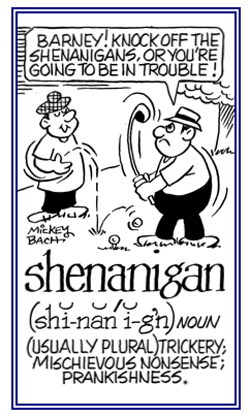English Words in Action, Group S
(a variety of English words which have developed through history and are currently used in our modern age)
Simply click on this banner (or the following link) and you will be on your way to stimulate your brain for greater word comprehension with quizzes based on some of the words in this unit.
shaky (adjective); shakier, more shaky; shakiest, most shaky
Referring to not not being strong or steady in movements, sound, etc.: Shirley took a few shaky steps before she collapsed after hearing that her mother had just died.
sham (adjective) (not comparable)
Something that is false, fake, or phony and which is claimed to be genuine but isn't: Dina's sham illness was intended to gain sympathy from her colleagues at work.
1. Anything that is not what it appears to be and which is meant to trick or to deceive people: The press claims that the woman's trial was a sham.
2. Someone who deceives people by pretending to be a particular kind of person, to have a particular skill, or produce certain products, etc.: There were many who thought the Congressman was telling the truth, but then his sham was exposed on the social website.
2. Someone who deceives people by pretending to be a particular kind of person, to have a particular skill, or produce certain products, etc.: There were many who thought the Congressman was telling the truth, but then his sham was exposed on the social website.
1. A close fitting cover of something; especially, anything that is elongated in shape or structure: One kind of sheath is a safe place to keep the blade of a sword or a knife.
2. The connective tissues in the body that closely cover an organ or parts of the anatomy: There are sheaths around nerve fibers, vessels, muscles, tendons, and joints in bodies.
3. A protective cover of objects: The electrician made sure that the wires were covered with plastic sheaths.
4. Etymology: from Old English scaeth, sceath, "scabbard" of Germanic origin; related to Dutch schede and German Scheide, "split, divide".
2. The connective tissues in the body that closely cover an organ or parts of the anatomy: There are sheaths around nerve fibers, vessels, muscles, tendons, and joints in bodies.
3. A protective cover of objects: The electrician made sure that the wires were covered with plastic sheaths.
4. Etymology: from Old English scaeth, sceath, "scabbard" of Germanic origin; related to Dutch schede and German Scheide, "split, divide".
sheathe (verb), sheathes; sheathed; sheathing
To place something into a close fitting or protective covering: The man sheathed his hunting knife into a leather case that he had on his belt.
Someone who is involved in placing protective coverings on something: The sheathers were placing metals on the doors for better protection of the inside of the building.
A protective casing or covering: The movie showed the swordsmen carrying their weapons in their sheathings.
The carpenters placed the first sheathing of plywood on the outside of the house they were building before they put the final sheathings on.
A behavior or activity which is neither proper nor honest: It is obvious that some members of the U.S. Congress have been engaging in political shenanigans.

© ALL rights are reserved.
Go to this Word A Day Revisited Index

Go to this Word A Day Revisited Index
so you can see more of Mickey Bach's cartoons.
Sparkling light that flashes and sparkles: The shimmers of the jewels under the bright lights were amazing to see.
shimmer (verb), shimmers; shimmered; shimmering
To shine with light that appears to move slightly: The sky was shimmering more than usual during the night.
shimmering (adjective), more shimmering, most shimmering
Descriptive of shining as with a light that seems to move slightly: Because of the heat, drivers going to work could not avoid seeing the shimmering rays rising up from the highway.
shimmery (adjective), more shimmery, most shimmery
Conveying light that flashes or glistens and moves with brightness: The multitudes of shimmery lightning bugs, or fireflies, that were flying around during the evening, were spectacular.
shirk (verb), shirks; shirked; shirking
1. To avoid doing something that a person is supposed to do: Mike is too conscientious to shirk his responsibilities as a computer programmer.
The students did their assignments without shirking or complaining.
2. Etymology: origin is uncertain, perhaps from German Schurke, "scoundrel, knave, villain".
A person who avoids doing his or her obligations or responsibilities: Some shirkers claim illness in order to have an excuse for not doing what is expected of them on their jobs.
shoddily (adverb), more shoddily, most shoddily
Relating or pertaining to that which is poorly or shabbily done: Ingrid considered the book to be about the most shoddily composed novel she has ever read.
Links to all of the groups of English words in action, Groups A to Z.
You may see the bibliographic list of sources of information for these words in action.


